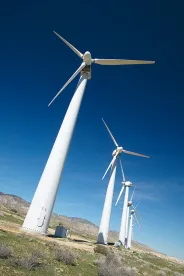A letter issued by the Office of Legislative Affairs at the Department of the Treasury Thursday suggests that some relief is on the way for a renewables industry that has been battered by the COVID-19 crisis and has expressed concern about fast-approaching tax credit deadlines.
Addressed to Senator Chuck Grassley of Iowa, Chairman of the Senate Committee on Finance, the brief letter indicates that the Treasury will be extending the deadlines for both the investment tax credit (ITC) and production tax credit (PTC) programs, stating that it “plans to modify the relevant rules in the near future.” While the three-sentence letter did not provide any details on the extension, the Treasury’s statement comes in response to a letter penned by a bipartisan group of senators, spearheaded by Senator Grassley, on April 23, 2020 requesting that the Treasury extend the current four-year “continuous construction” safe harbor for the PTC and ITC, described below, by one year. In the letter, Grassley, who has long championed the US wind industry, argued that the change would allow more time for solar and wind developers to qualify for the federal programs aimed at incentivizing the construction of clean energy projects.
Under the existing provisions, developers must “begin construction”—i.e., begin physical work or incur capital expenditures equal to 5% of the total project cost—by a specified date in order to qualify for the ITC or the PTC. Projects often start construction in contemplation of accessing the credits, and the default rule is that “continuous construction” or “continuous efforts” (depending on whether construction was begun via physical work or capital expenditures) must continue until the project is completed. However, under the current IRS guidance, the “continuous construction” or “continuous efforts” requirement is considered to be met if the project is completed in or before the fourth calendar year following the calendar year of the beginning of construction. The timelines for both programs have put pressure on developers scrambling to remain on track as COVID-19 has caused delays and thrown schedules into disarray with the closure of states across the country. Wind developers, whose projects typically take significantly longer to complete, have been especially worried about completing construction in time amid social distancing restrictions. This issue is even more pronounced for offshore wind projects, which typically take even longer to develop than onshore wind projects.
The response to the letter from the renewables industry has been positive, with the American Council on Renewable Energy stating that the change will be “immensely helpful” to the industry in coping with current conditions. The American Wind Energy Association also applauded the Treasury on the anticipated modification, citing how hard the renewables sector has been hit by the crisis. Developers appear to be optimistic that the change will allow more time and flexibility for meeting the requirements to receive the credits.
While the anticipated modification would further one industry priority, developers continue to push for additional changes, including a conversion of the credits into a grant program in a future stimulus bill and an extension of the tax credits, making them applicable for additional years. Nevertheless, the industry has expressed optimism about the Treasury’s statement, and while the full impact of the changes will not be clear until the department releases the official terms of the modifications, the industry has indicated that they remain optimistic and that they look forward to receiving further details.



 />i
/>i
